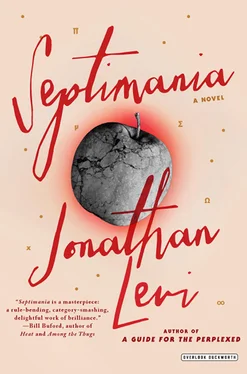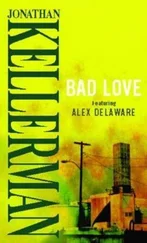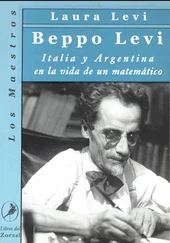“Hercule,” Mrs. Emery said. “You are in a rush, I can see.”
“Yes,” Malory said. “Sorry.”
“Don’t let me keep you.” Mrs. Emery didn’t move, and it was clear that she did not mean what she was saying. “But perhaps you can spare a moment for your grandmother.”
His grandmother. Mrs. Emery. Ahh. Malory’s mind began again. Mrs. Emery was his grandmother. There was the word. The Old Lady in the second pew was his grandmother. Like the discovery that goosed Archimedes out of his ancient Sicilian bathtub, the realization that Old Mrs. Emery was his grandmother had a touch of Eureka to it. But the surprise was tempered by a recognition that this was something he had always known. His mother had never spoken of her family. Malory had assumed a chorus of disapproval. Disapproval of his mother, disapproval primed by Sara’s choice of Irish lover, Malory père , a man whose judgment was in inverse proportion to his love.
Was it malice that Old Mrs. Emery felt towards her daughter Sara, towards the Irish lover, Malory’s father? Was it malice on Sara’s part that denied her own mother the knowledge of her grandson? For the first ten years of his life, Malory was only too willing to worship the decisions of his mother. And nothing he learned after her death induced him to develop the faculty of inquiry. Someone arranged for him to study and room at King’s College Choir School. He never asked who. He was at an age where he accepted everything, accepted the academics, the music, the bullying, although his posture was so naïvely open that the worst of the thugs felt it beneath their dignity to bloody a boy who didn’t know how to cower. And he never wondered why he was there.
Was it to this Mrs. Emery, this grandmother, that Malory owed — as unthinkingly, perhaps, as he owed God — his four A levels and subsequent Organ Scholarship to Trinity College, Cambridge? Was it to her he owed the request of the Master of Trinity that, for a small additional stipend, he play the ten o’clock service at the tiny Norman church of St. George, Whistler Abbey, every other Sunday morning (in such a depleted parish, the church had to share a preacher with Lesser St. Arnulf’s in Cambridge)? It was from the organ loft of St. George’s that Malory saw the gray-haired lady in the second pew every other Sunday. When later he had learned that, like his mother, her name too was Emery and that his stipend was directly transferred from her weekly donation to his pocket, he began to guess at her identity, or rather at his own. With the weight of that possibility, at the height of the organ loft, he felt his abandonment most keenly.
Instead of acknowledging the word grandmother , he made up a fiction to justify his abandonment. He had inherited his love of the organ from Mrs. Emery. Her piety, like his, was merely a stop that she could push in or pull out to create the desired effect, an unspoken linkage of two notes. It was part of a secret they shared. He’d always known and refused to think it odd that the old lady who smiled up at him from her seat on the aisle in the second pew never spoke to him and never approached him save to place a shilling in his palm at the close of service.
“You have known, Malory,” Mrs. Emery said, “I hope you have known for a long time that you had a grandmother who loved you very much, but loved her daughter more.”
Knowledge, Malory thought — tricky business, that.
“It was out of respect for my poor, dead Sara that I never approached you directly when I saw you in St. George’s, or the many times I traveled into town on visiting days at school and ordinary times, and watched and felt the loneliness I had brought upon you and your mother. I expect it was your own love and loyalty to your mother that kept you away from me, stronger than any loneliness imaginable.”
Malory said nothing, holding onto a gothic refusal to degenerate into a Dickensian Pip. But he remembered that final summer in the South of France.
“Whose garden is this, Mother?”
“What do you mean, Hercule?
“Does it belong to Charlemagne?”
“Not everything belongs to Charlemagne,” she smiled. “Not much, in fact. Any more.”
“Then who?”
“It’s yours, Hercule. The garden, the house.”
“It isn’t yours?”
“Some things,” she said, “are just for boys.”
“But this garden is just for me?”
“If you like.”
“Do we like it here?”
“You like the organ in the cathedral, don’t you?”
“Oh, yes.”
“And the old lady next door? Do you like her?”
“In the big house? I thought this was her garden, her cottage.”
“No, Hercule, it’s yours. The old lady and I are just looking after it for you. Until you are bigger.”
“And the medallion of King David in the cathedral? The one that you say looks like me. Is that mine?”
“One day, perhaps. Who knows?”
“The boys in the market make fun of my name. They say there is a giant Hercule who’s asleep beneath the hills.”
“How do you know what they’re saying if they speak another language?”
“Is it true, Mother? About the giant?”
“If I told you, would you believe me?”
“They say he stood in the ocean and pushed Europe away from Africa. Then he got sleepy and lay down.”
“Not surprising after such hard labor.”
“They say he rose up, the giant, and chased away all the Saracens.”
“The Saracens! Did he?”
“Is he my father? The giant Hercule?”
“I thought you wanted to go to the cathedral, to play the organ.”
“It’s out of tune, mother.”
“Oh, Hercule. You and your ears!”
“But it is. The whole world. England, France, Europe, Africa. Out of tune.”
His mother paused. She tried to smile.
“Then you must tune it, Hercule,” she whispered, “the way the giant Hercule tried to adjust the Strait of Gibraltar.”
Malory said nothing to Mrs. Emery, sitting in the second pew of St. George’s Church, Whistler Abbey. He shifted the Kit Bag on his shoulder, the canvas of the strap brushing a light B-flat against the corduroy of his jacket. There was nothing to be said, zero. But not an uncomfortable zero. It was a zero stuffed full of history — addings and subtractings, the products of time and experience and the gain that fills the vacuum of loss.
“I’ve brought you a gift, Hercule,” Mrs. Emery said.
“Ah.”
“No,” Mrs. Emery smiled. “Not the usual shilling. A book.” She handed him a parcel covered in brown paper and string. “An old book. It’s been in the family, which, after all, is your family, at least—” She smiled again at her own inability to disguise her wistful distaste. “At least your mother’s side of the family.”
“Thank you,” Malory said, ever polite, finding a convenient slot for the parcel in the depths of the Kit Bag. “But why?” he asked. “Why today?” He didn’t know why he said it. But in a day of mysteries, it was the question of Pips and fair-haired girls and grandmothers.
“To celebrate your discovery, of course.” Mrs. Emery stood and handed him a coin, her fingers as cool as the paving stones. “Now run across the road and get yourself a cup of tea.”
IT WAS GETTING ON TOWARDS THREE O’CLOCK. BENEATH THE FIRST BUDS of the apple trees, a dozen green-striped lawn chairs were scattered as bait for the hardened tourist who might bicycle or motor or even punt the three miles from the urban towers of Cambridge in hope of the first bucolic pleasures of spring. But Malory needed to warm his brain. He opened the garden door of the Orchard and chose a small table inside near the fire. The single customer, a tall, red-bearded man, was chatting at the till in what Malory guessed was some sort of American accent. He nodded at Malory, but Malory turned to the fire, pretending not to see — not keen to give offense, but not prepared for a third new encounter.
Читать дальше












